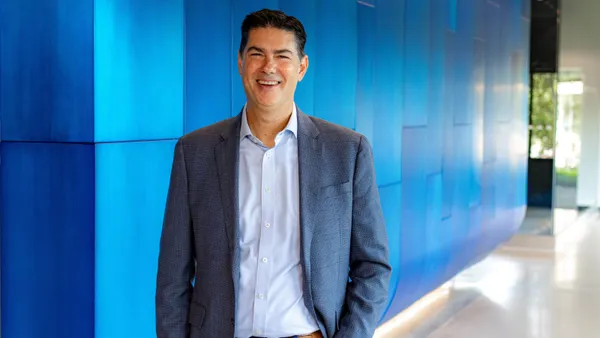Dive Brief:
-
In a report issued this week and obtained by Construction Dive, Moody's Investors Service came to the conclusion that fixed-price engineering and construction (E&C) contracts offer more risk than reward for the companies that choose to take them on.
-
Moody's said that there is a shift toward fixed-price contracts within the E&C sector, and, while that creates more certainty for owners, it has resulted in more charges for E&C companies like Fluor and McDermott Technology Inc. beyond the original contract amount, as well as negative cash flows and weaker credit ratings. In the last year, Fluor and McDermott alone saw combined charges of $1 billion. Clients are able to demand fixed-price contracts, the credit rating agency said, because of the high level of competition between E&C contractors for large, complex and potentially high-margin projects like power plants, LNG terminals and infrastructure.
-
The companies that aggressively bid these projects and then experience events that cause losses — labor issues, bad weather and other project challenges — "indicate shortcomings in risk management and execution," Moody's said. Some of the E&C companies that Moody's tracks have announced that they plan on reducing the number of high-risk, fixed-price contracts they pursue, but the authors of the report indicated that because of a still-competitive bidding environment and big project backlogs, the results of those strategy changes will likely not be realized in the short term.
Dive Insight:
In general, fixed-price contracts, said attorney Quinn Murphy with Sandberg Phoenix in St. Louis, are only as good as the estimate on which they are based. "And [putting together] an accurate bid can be challenging," he said, because of the many uncertainties in the market today, like the fluctuating costs of labor and materials and the imposition of tariffs.
Certainly, Murphy said, these companies are incurring risks beyond what their project estimators may be able to anticipate.
"Estimating is very hard on those projects," said Andrew Richards, attorney and chair of the construction practice group at Kaufman Dolowich & Voluck, LLP in New York. However, he said, it is key to a successful project, along with controlling the costs associated with general conditions and subcontractors.
Also critical is making sure the project is delivered on time — even if the delays are owner-driven.
If there is a "no damages for delay" clause in the contract, Richards said, that means the contractor is on the hook for all of the associated costs caused by owner-related delays on the project, which can be significant. "That's where you can get killed," he said.
"But the flip side is also true," Murphy told Construction Dive. "If you can accurately estimate what the project costs will be, you’re going to have access to a large market of fixed-price contracts ... that can be lucrative as well."
So, is this an issue only for huge contractors working on megaprojects? No, Murphy said. Owners of both large and mid-size projects are looking for certainty. "There has been an [owner] shift toward maximum predictability," he said.
It is hard to finance a project when an owner doesn't know the exact cost upfront, he said, and some have been burned on other types of contracts where construction companies give very low bids and then try to make it up by submitting change order after change order.
The ability to submit and be reimbursed for changes when working under a fixed-price contract, Murphy said, are few and far between. Change orders in that scenario are typically reserved for changes in the scope of work only.
From the owner's point of view, Murphy said, a fixed-price contract wherein the contractor assumes so much risk might be an even trade when those same contractors can make such high margins. In fact, Richards said that a fixed-price contract bid correctly can be better for the contractor financially than a contract like “construction management with a guaranteed maximum price” because it doesn't have to share cost savings with the owner.
The bottom line is that as long as there is a lot of competition for jobs, the owner calls the shots as far as the contract type, and contractors need to keep their eyes open, make sure their bids are as thorough as possible and be aware that they could have to absorb cost overruns.
"They're going to have to live with it," Murphy said.












